Disability Care

What is disability care?
Disability support at home helps you to live life on your own terms with a dedicated carer.
Disability care enables people living with disabilities to live as comfortably, independently and securely as possible. At Helping Hands, we offer disability home care, which allows you to receive specialist support for your disability in your own home. Your carer will visit you at home as little or as often as you require, and provide you with extra help and support as needed.


What is disability home care?
Disability home care gives you the opportunity to receive all the additional care you need without having to move away from friends and family into a care home. You’ll be fully supported to live life the way you want to, and our wonderful carers will ensure that the tasks and routines that you want to undertake are within your reach.
Our disability home carers provide support with mental and physical health, education, personal relationships, and hobbies. The care receiver is in charge, they will identify their aims and the support they receive, then Helping Hands’ disability care team will them help then achieve their goals.
Our disability home care offers you the following:
A fully bespoke care plan
One of the main features of disability home care is that your care plan will be designed around your personal requirements and preferences
One-to-one care
You’ll receive personal one-to-one support from a friendly, compassionate carer who will get to know you and the requirements your condition
Flexible, adaptable support
With visiting home care, you’re truly in charge of every aspect of your support, and can make changes to your care provision whenever you wish
Who is disability care suitable for?
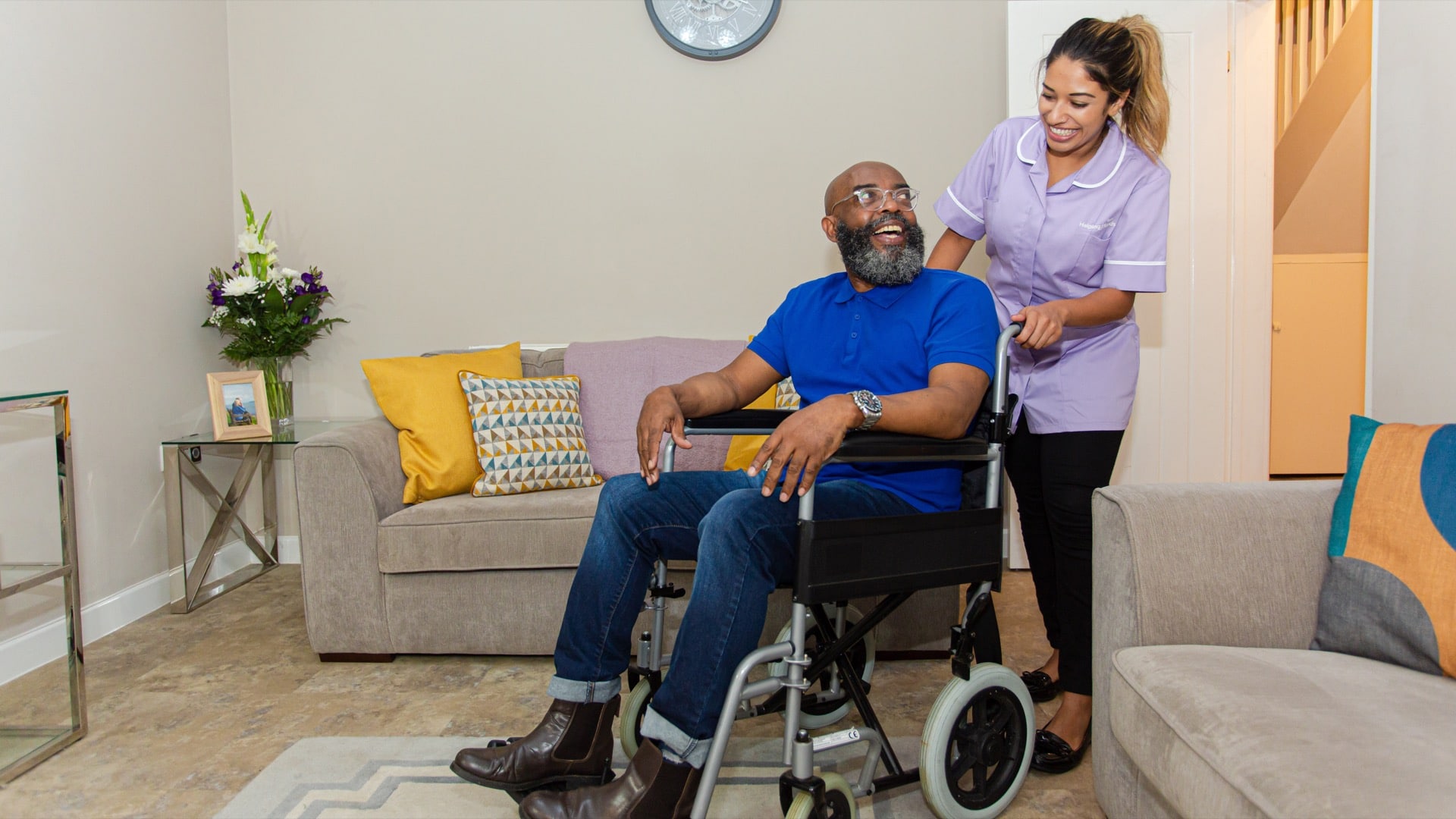
Disability care is suitable for anyone living with a physical disability or mental impairment.
Whatever the circumstances, disability care can be suitable for someone who wants to remain in their or a loved-one’s home but needs additional support to be able to live their best life. It doesn’t matter what age you are or what your particular needs may be; our local care experts will take the time to fully understand your condition so that our disability carers are able to provide dedicated, meaningful support.
What conditions are considered a disability?
We provide dedicated care for people living with a wide range of disabilities.
If you’re living with a disability, we can offer personalised support and respite care that ensures you’re able to live life on your own terms and from the comfort of the home that you love. Here are some of the disabilities we can support:

Types of cancer
Types of dementia
Multiple Sclerosis
HIV infection
A visual impairment
Severe disfigurements
Skin diseases
And many more
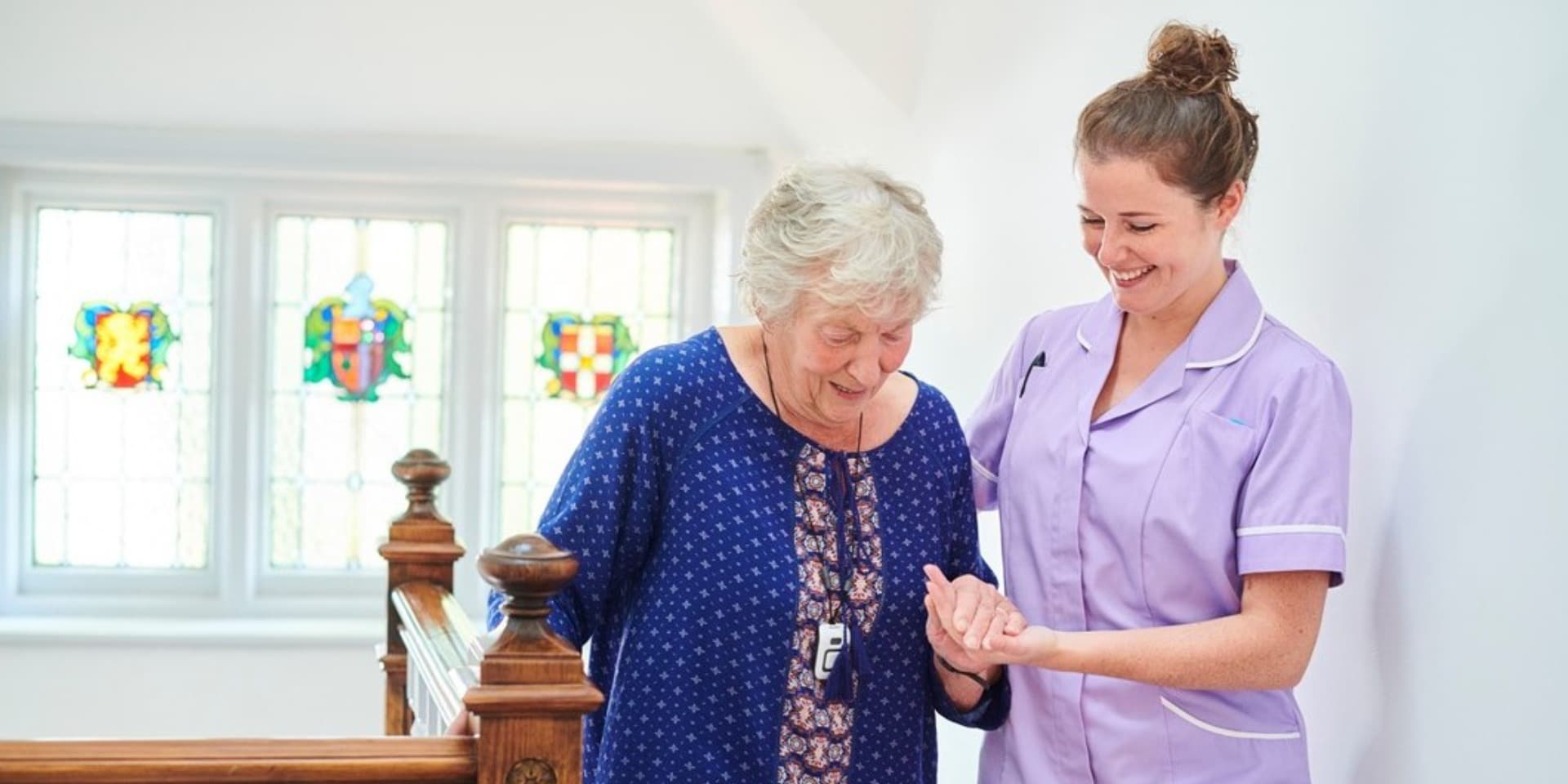
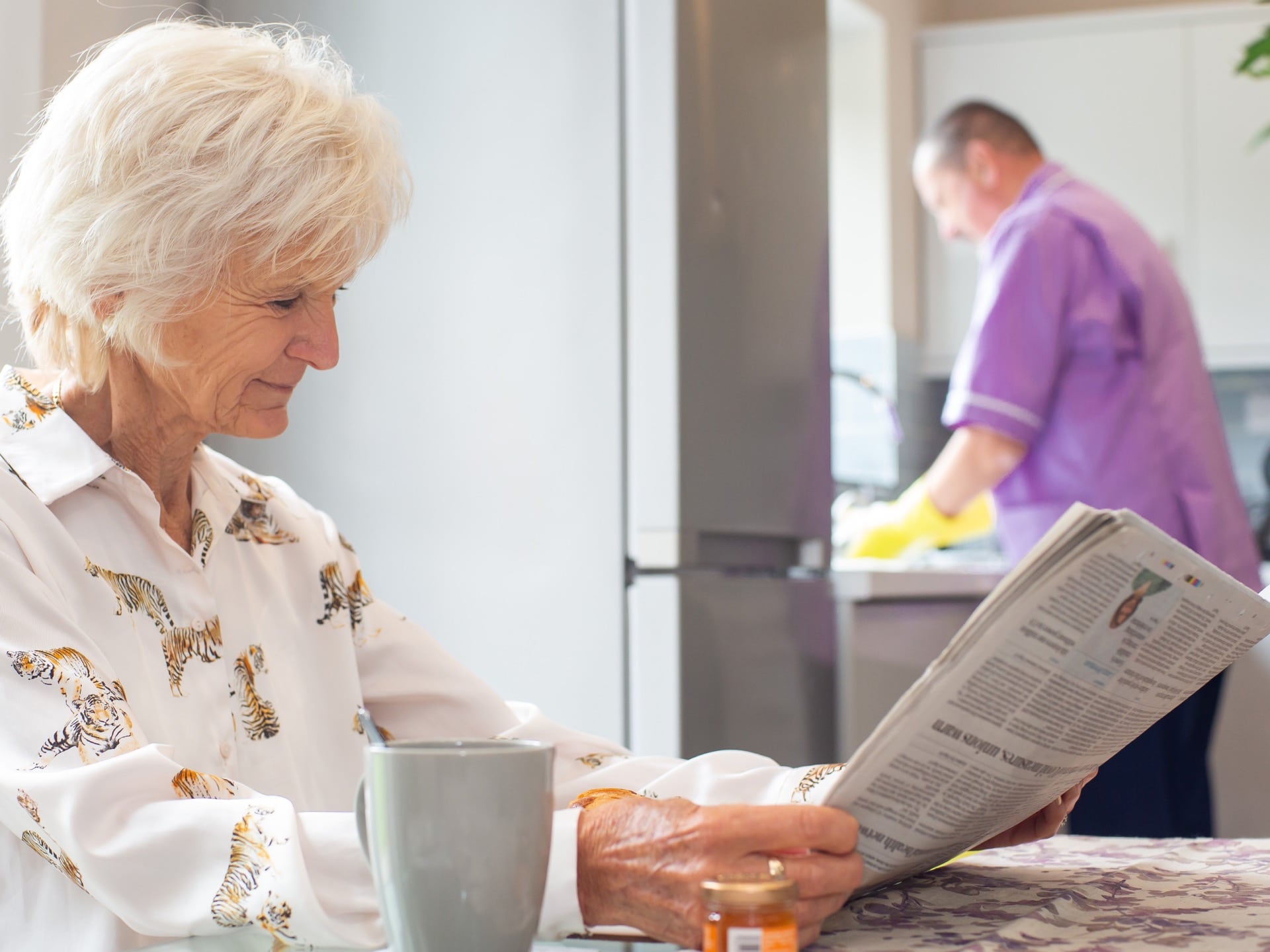
The benefits of disability care at home
Receiving care at home allows to live your life as independently as possible, as well as being highly beneficial for both your physical and emotional wellbeing.
We all like to feel that we have control over our own lives and the choices that we make, and if that is prevented it can have a detrimental effect on our health. One-to-one disability care from an expertly-trained carer can help you to live life on your own terms, allowing you to enjoy a number of benefits that you wouldn’t experience at, for example, a residential nursing home.
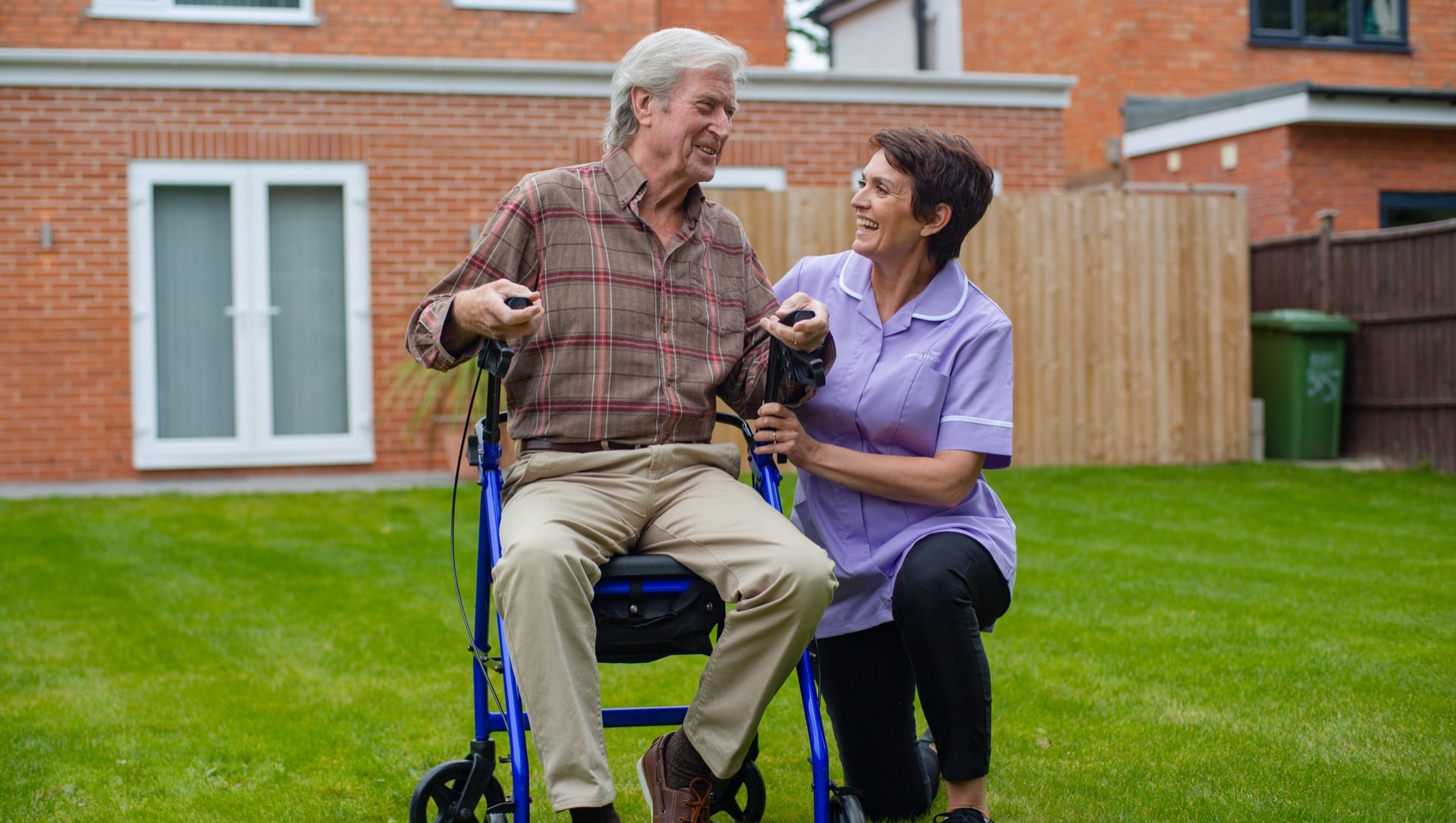
The benefits of home care include:
Personalised physical support
No two people have identical support needs, so we’ll make sure you receive a bespoke package of care that helps you live your best life
Familiar, comfortable environment
Disability care at home allows you to receive the support you need in the comfortable, familiar surroundings of your own much-loved home
Spend more time with loved ones
Your carer can accompany you to visit friends and family whenever you wish, as well as helping you to host them in your own home
Control over your care plan
You’ll have full control over all aspects of your care plan – whether that’s choosing your meals and bed times, or deciding how often you have care visits
Specialist disability care
Our carers are expertly trained to provide specialist disability support for people with a wide range of disability care needs
Your independence, supported
Staying at home for care means you can continue living life on your own terms while your carer assists with all the difficult chores and routines
How our disability carers can help you
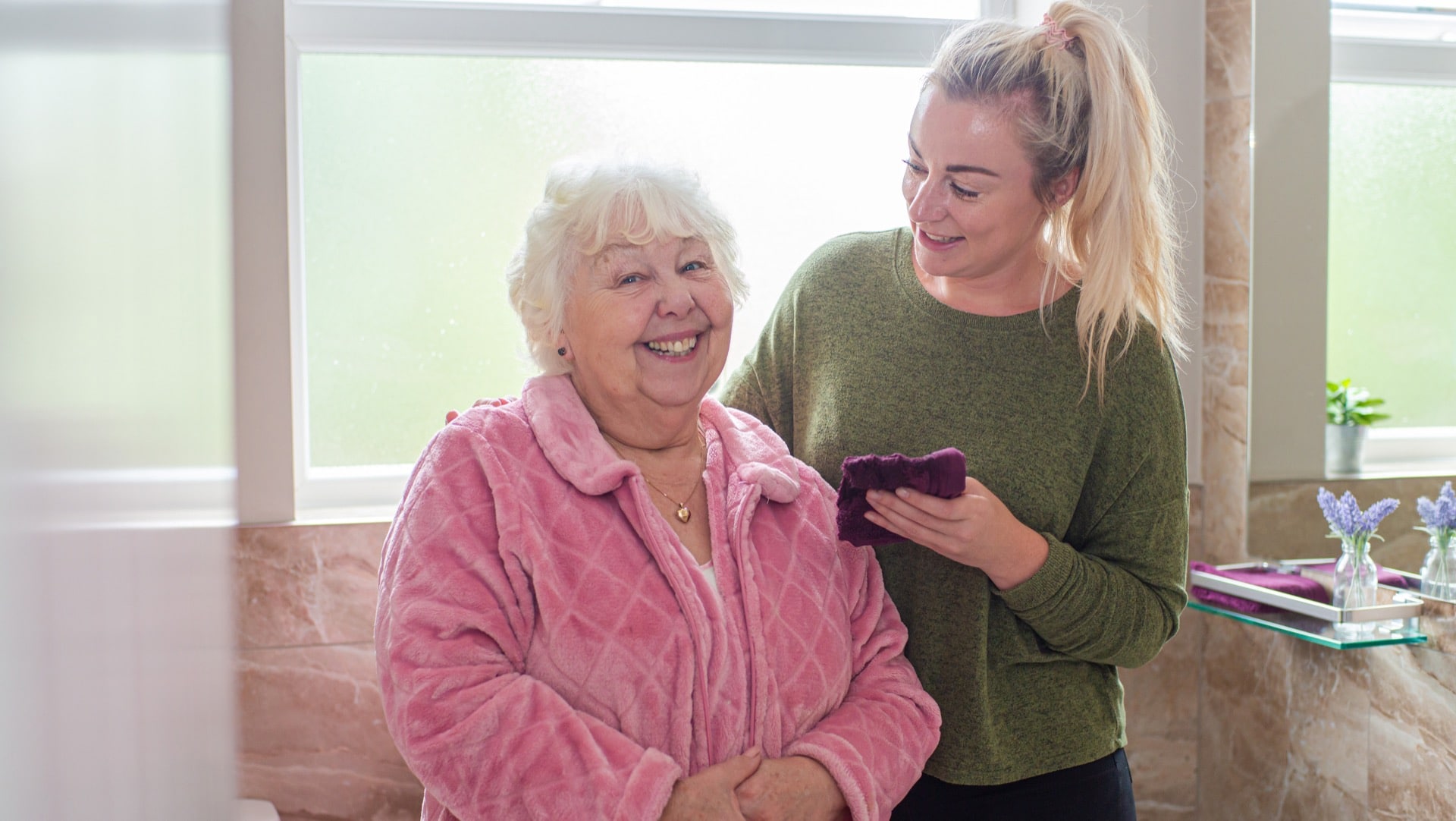
Our carers truly are at the heart of everything that makes our disability care great.
We’re extremely proud of our brilliant carers at Helping Hands. All of our carers are handpicked for their compassionate, dedicated approach to their roles, and are constantly going above and beyond to ensure every customer receives the exceptional support that they’ve come to expect from us over the 35 years we’ve been providing care. Whatever your support needs, our carers are equipped to help you at home.
Here are just some of the many ways disability carers can support you:
Personal care
Your carer can provide discreet personal care such as help with toileting, bathing and dressing, and providing stoma and catheter support
Mobility support
Our carers are all fully trained in providing safe, reassuring mobility support to help you move around your home securely
Enjoying your hobbies
We can support you to enjoy your hobbies – whether that’s sitting in your garden listening to the radio, socialising with friends or anything else
Housework
Whether it’s doing the laundry, preparing your favourite meals or doing a deep clean, our carers can help with anything you’re struggling with
Attending work or university
If you’re finding that you or a loved one need a bit of help getting to your place of work or to college, a carer can support you to attend on a daily basis
Getting out and about
Our carers can help you get out of the house – including helping you use public transport – to pop to the shops, visit loved ones or take a break
Looking to become a qualified carer?
Types of care for adults with a disability
We know that no two people have identical care requirements, which is why we’ll always take the time to fully understand your needs and wishes before offering you a personalised care plan. We can offer you disability home care on both a visiting and live-in care basis; here are some brief descriptions of how each one works:
Visiting care involves having regular calls throughout the week at times that suit your routine and your needs. Our visiting care is fully flexible around your preferences.
Visits from 30 minutes a week
Flexible support
Condition-led care
With live-in care, you’ll have one of our wonderful carers living in your home with you and helping you to live with your disability through all circumstances.
24-hour care
Life on your own terms
Handpicked carer
Arrange disability care today
Speak to our team
Call our team of experts to talk through your options and any questions you may have.
Free home care assessment
Your local Helping Hands manager will visit you to discuss your requirements and learn about the type of carer you’re after.
Find your carer
We’ll help to find your carer that meets your preferences and has the right skills and experience for your needs.
Fully regulated by the CQC / CIW
Here at Helping Hands, our live-in care service is fully managed and regulated by the Care Quality Commission (CQC).
From your very first phone call to our friendly team, every aspect of your home care service is independently monitored and regulated by the CQC and Care Inspectorate Wales (CIW).
Why is it important to have regulated care?
What does regulation mean?
Being regulated means that every aspect of our care is monitored and regulated independently
Why do we choose to be regulated?
We choose to offer a regulated service so that our customers have full peace of mind about their care
How does regulation affect my care?
Regulation means that your care is subjected to constant review and has to meet certain standards
Page reviewed by Carole Kerton-Church, Regional Clinical Lead, on July 25, 2024.
How we wrote this page
This page has been produced referencing key insights and data from external experts, trusted medical sources and our team of in-house specialists. We have worked hard to ensure that all information is as accurate as possible and reflects current consensus at the time of writing and reviewing.